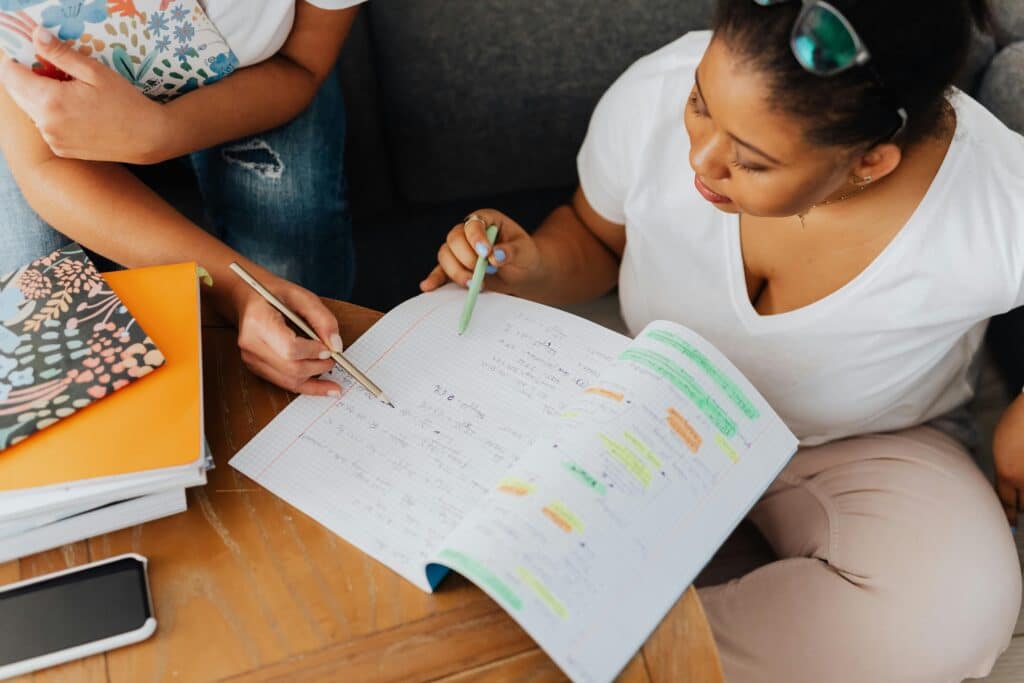Finding Your Academic Anchor

It’s 10 p.m., and the library lights hum softly as you scroll through lecture slides that refuse to make sense. The midterm is tomorrow. Your coffee’s cold. You’ve reread the same paragraph five times. Then, a classmate texts: “Come by the peer tutoring center—trust me.” You go, unsure. But within twenty minutes, something shifts. The tutor—a student just a year ahead—breaks down the concept, relates it to a real example, and suddenly, you get it. That’s the quiet power behind Peer Tutoring Programs for University Students—not just understanding, but confidence rediscovered.
Why Peer Tutoring Matters More Than Ever
University life throws endless challenges your way: juggling part-time jobs, managing finances, and keeping grades afloat. The balance feels impossible. Yet research shows that students who participate in Peer Tutoring Programs for University Students report higher academic performance and stronger self-efficacy compared to those studying alone (Tiari et al.). Tutoring doesn’t just help you pass—it helps you believe you can.
A study from the Journal of Peer Learning found that students involved in regular peer-led sessions retained more information and developed stronger problem-solving skills than those relying only on lectures (Gilman et al.). Peer tutors bridge the gap between theory and practice, explaining concepts in ways professors often can’t. For many, this shift turns confusion into curiosity—and grades begin to follow.
Beyond academics, these programs build belonging. A study of first-year nursing students showed that peer tutoring not only improved grades but also lowered anxiety and strengthened confidence during practical exams (PubMed). That sense of connection—to both peers and the learning process—can be the anchor that keeps you steady through the storm of university stress.
When you join Peer Tutoring Programs for University Students, you gain:
- Clarity: Concepts explained in relatable language by someone who’s already succeeded.
- Confidence: Academic challenges feel less intimidating when you have peer support.
- Community: Tutors create networks of encouragement, not competition.
- Consistency: Regular sessions build structure and accountability into your routine.
- Communication Skills: You learn how to ask questions and express understanding clearly.
Universities like Brown have even integrated structured peer-led tutoring into their teaching models, emphasizing deeper engagement and skill development beyond the classroom (Brown University). These programs prove that learning thrives through collaboration, not isolation.
You deserve a study experience that’s less about survival and more about growth. Through Peer Tutoring Programs for University Students, you’re not just chasing grades—you’re discovering new ways to learn, connect, and succeed.
Behind the Scenes: What Really Works—and What Doesn’t—in Peer Tutoring for university students

The library’s hum, the buzz of group chats before exams, and the quiet panic that comes with university life—these moments make academic support feel essential. Across campuses worldwide, Peer Tutoring Programs for University Students have become a lifeline, offering more than just help with assignments. They build connection, confidence, and community. But they’re not perfect. Behind the praise are valid concerns about quality, dependence, and fairness. Understanding both sides gives you the power to use these programs wisely.
Research shows consistent academic gains from peer tutoring. At the American Society for Engineering Education, researchers found that students who regularly used peer tutoring services raised their GPA by nearly half a grade compared to nonparticipants (Tiari et al.). Others, like Gilman and colleagues, observed that students developed sharper critical-thinking skills and deeper retention of course material through structured tutoring sessions (Gilman et al.).
Table 1: Reported Academic Outcomes from Peer Tutoring Studies
| Outcome Category | Average Improvement | Source |
|---|---|---|
| GPA increase after tutoring participation | +0.4 to +0.7 points | Tiari et al. |
| Concept comprehension and retention | +32% over non-tutored peers | Gilman et al. |
| Course completion/retention rate | +15% among participants | PubMed |
These results highlight that peer tutoring doesn’t just boost test scores—it enhances how you approach learning itself. Students often report newfound clarity and engagement, especially in challenging courses where faculty time is limited (Brown University).
When you participate in Peer Tutoring Programs for University Students, you can gain:
- Better comprehension: Complex concepts are broken down in relatable terms.
- Higher motivation: Working alongside someone who has overcome the same challenges inspires persistence.
- Collaborative learning: You learn to exchange ideas instead of memorizing facts.
- Confidence in exams: Reviewing material aloud with a peer strengthens recall and reduces test anxiety.
- Emotional support: Tutors help you feel less isolated, reminding you that struggling is part of learning.
- Improved communication: Discussing ideas out loud builds clarity and self-expression.
- Stronger study habits: Regular sessions add structure to your academic week.
- Leadership experience (for tutors): Those who teach others often deepen their own understanding (Hoffner and Landrieu).
Still, no system is flawless. That’s where the next section matters most.
The Hidden Challenges of Peer Tutoring

While Peer Tutoring Programs for University Students bring measurable benefits, several studies highlight persistent challenges. Not all tutoring sessions are equal, and not every student finds the experience helpful.
The first concern is tutor preparedness. Because tutors are fellow students, their depth of understanding and ability to explain concepts varies. Yoviyanti and colleagues found that without proper training, tutors sometimes oversimplify or unintentionally pass along misconceptions (Yoviyanti et al.).
A second issue involves student dependency. Overreliance on peer tutoring can discourage self-directed learning. Instead of developing independence, some students become reliant on external help to complete assignments or prepare for exams (Gilman et al.).
Lastly, there’s the challenge of equity and access. In engineering programs, for instance, underrepresented or first-generation students sometimes feel less comfortable seeking help due to stigma or scheduling barriers (Yang et al.). This can lead to uneven participation and outcomes.
Table 2: Reported Concerns and Limitations of Peer Tutoring Programs
| Concern Type | Description | Source |
|---|---|---|
| Tutor Preparedness | Inconsistent quality due to varying tutor expertise | Yoviyanti et al. |
| Student Dependency | Risk of reduced self-directed learning | Gilman et al. |
| Equity and Access | Discomfort among minority groups or nontraditional students | Yang et al. |
To help you use these programs wisely, here are key points to keep in mind:
- Ask for trained tutors. Many campuses offer certified peer tutoring with staff supervision.
- Set clear goals. Enter each session knowing what you want to master.
- Balance help with independence. Use tutoring to clarify—not replace—your own studying.
- Provide feedback. If a session isn’t helping, share your experience with the tutoring center.
- Use tutoring early. Don’t wait until you’re falling behind; consistency matters more than last-minute cramming.
Peer tutoring should serve as a springboard for learning, not a crutch. Universities must continuously refine their programs to ensure they empower students without limiting self-growth.
Building Smarter Support Systems
To create stronger and fairer Peer Tutoring Programs for University Students, institutions are now focusing on three key areas: tutor training, student engagement, and integrated learning resources.
Brown University’s Sheridan Center has found that effective tutoring involves structured training, ongoing reflection, and student feedback to maintain high-quality learning experiences (Brown University). When tutors receive guidance on communication strategies and subject mastery, their sessions become more consistent and impactful.
Similarly, a study from The Journal of Peer Learning suggests that hybrid approaches—mixing tutoring with group discussions and faculty oversight—yield better academic outcomes than standalone sessions (Gilman et al.). Collaboration between students and educators ensures accuracy while keeping the informal, relatable spirit that makes peer tutoring so effective.
To make the most of tutoring, combine it with tools that reinforce your independence and organization. This is where ScholarlySphere helps: offering insights on budgeting, time management, study skills, and note-taking that complement what you gain from tutoring. You don’t just learn the course—you learn how to learn smarter.
Practical ways to strengthen your tutoring experience include:
- Prepare questions beforehand. Know which topics confuse you most.
- Summarize key takeaways. After each session, write a short reflection.
- Vary your study methods. Pair tutoring with flashcards, practice quizzes, and group discussions.
- Rotate tutors occasionally. Exposure to multiple teaching styles enhances comprehension.
- Track personal progress. Note not just grade changes, but confidence, engagement, and stress levels.
- Build community. Encourage friends to join tutoring programs—you’ll learn better together.
- Schedule regular sessions. Frequency often matters more than duration.
The evidence is clear: Peer Tutoring Programs for University Students thrive when supported by structure, training, and thoughtful student participation. They offer flexibility and empowerment but require awareness to work at their best.
Peer tutoring, at its heart, is about connection—students helping students through the same challenges you face every semester. When balanced with self-direction and feedback, it becomes one of the most effective academic tools you can use.
Final Thoughts

You’ve probably realized by now that Peer Tutoring Programs for University Students aren’t a quick fix—they’re a partnership. When used wisely, they can turn confusion into clarity, frustration into progress, and isolation into community. But like any academic tool, their success depends on how you use them and how well universities design them.
Across the research, one message stands out: peer tutoring works best when it’s structured and supported. Studies consistently show improvements in GPA, concept mastery, and confidence when students engage in ongoing tutoring sessions (Tiari et al.; Gilman et al.). These programs help you see learning as a shared journey rather than a solo struggle. They remind you that asking for help isn’t weakness—it’s strategy.
Yet, being realistic matters too. Some students experience inconsistent quality or find it hard to rely on fellow students for complex subjects (Yoviyanti et al.). Others may become too dependent on tutors, losing touch with independent study habits that are crucial for long-term success (Gilman et al.). These concerns don’t cancel out the benefits, but they remind you to stay proactive—using tutoring as a boost, not a crutch.
For universities, the challenge is balance. Programs that train tutors carefully, gather regular feedback, and promote inclusivity tend to deliver stronger outcomes (Brown University; Yang et al.). When all students—especially first-generation or nontraditional learners—feel welcome, peer tutoring becomes more than academic support; it becomes an equalizer.
For you, it’s about intention. Going to a session prepared, reviewing your notes afterward, and tracking your growth turns tutoring from a one-time fix into a continuous learning process. And combining it with tools like ScholarlySphere, which offers insights on studying, budgeting, and note-taking, can make your entire university experience smoother and more sustainable.
Key Takeaways
Combine resources: Pair tutoring with platforms for studying and budgeting support.
Structure matters: Organized, well-trained programs lead to stronger academic outcomes.
Stay balanced: Use tutoring to enhance your learning, not replace your own effort.
Inclusivity counts: Programs that welcome diverse learners see higher participation and retention.
Reflection builds results: Reviewing sessions and tracking progress improve long-term retention.
Works Cited
Yoviyanti, Rifkah, et al. “The Effectiveness of Peer Tutoring on Students’ Understanding of Mathematical Concepts.”Jurnal Pedagogi dan Pembelajaran, vol. 6, no. 3, 2019, pp. … DOI: 10.23887/jp2.v6i3.65191. https://ejournal.undiksha.ac.id/index.php/JP2/article/view/65191
Tiari, Saeed, et al. “A Study of the Effects of Peer Tutoring in Relation to Student GPA.” ASEE Conferences, 2020. https://peer.asee.org/a-study-of-the-effects-of-peer-tutoring-in-relation-to-student-gpa
“Impacts of Peer Tutoring on Academic Performance of First-Year Baccalaureate Nursing Students: A Quasi-Experimental Study.” PubMed, 2020. https://pubmed.ncbi.nlm.nih.gov/33186748/
“Peer-Led Small-Group Tutoring | Sheridan Center for Teaching and Learning | Brown University.” Brown University, 2025. https://sheridan.brown.edu/services/tutoring/peer-led-small-group-tutoring
“Why Peer Tutoring?” Peer Tutoring Resource Center. https://www.peertutoringresource.org/why-peer-tutoring/
Hoffner, Melissa and Claire Landrieu. “Measuring the Effectiveness of Peer Tutoring Services at Tutorial Services: A Correlation Study Between Student Use of Peer Tutoring and End-Of-Semester Grades.” Assessment Mini Grant Reports, 2022. https://digscholarship.unco.edu/assessmentgrant/22
“A Paired-Course Comparison of Supplemental Instruction and Traditional Tutoring.” Journal of Peer Learning, Gilman, Sarah E., etc., 2021. https://journalofpeerlearning.org/en/articles/10.21061/jopl.122
“Engineering Students’ Views on the Effectiveness of Peer Tutors in Scholars Assisting Scholars Program.” ASEE Conferences, Yang, Bette et al., 2020. https://peer.asee.org/34563
Chiew, Fei Ha, et al. “Effectiveness of Peer Tutoring Program on Students’ Academic Performance for Engineering Course.” IJSMS Sarawak, vol. 6, no. 1, 2021. https://www.ijsmssarawak.com/ijsms_vol_6_1/5_M075_Peer%20Tutoring_final_vbh.pdf

